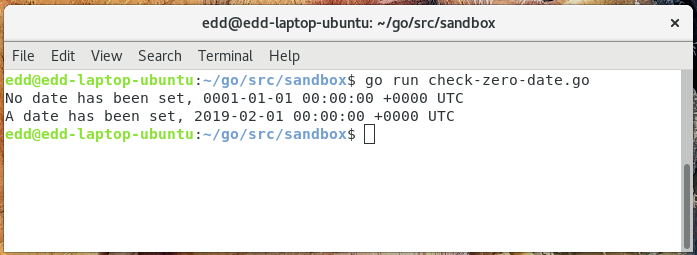Check If a Date/Time Has Been Set with IsZero
·
198 words
·
1 minute read
In Go, we can store and use dates using the time package and although a date in Go cannot be saved as null (because there’s no such thing) there is an unset state. This unset state can be shown as 0001-01-01 00:00:00 +0000 UTC and there’s a simple way we can check if a date variable has been populated, as demonstrated below. It’s also important to note that these are not unix timestamps, which go back as far as 1970, but can handle a large spectrum of dates.
|
|

